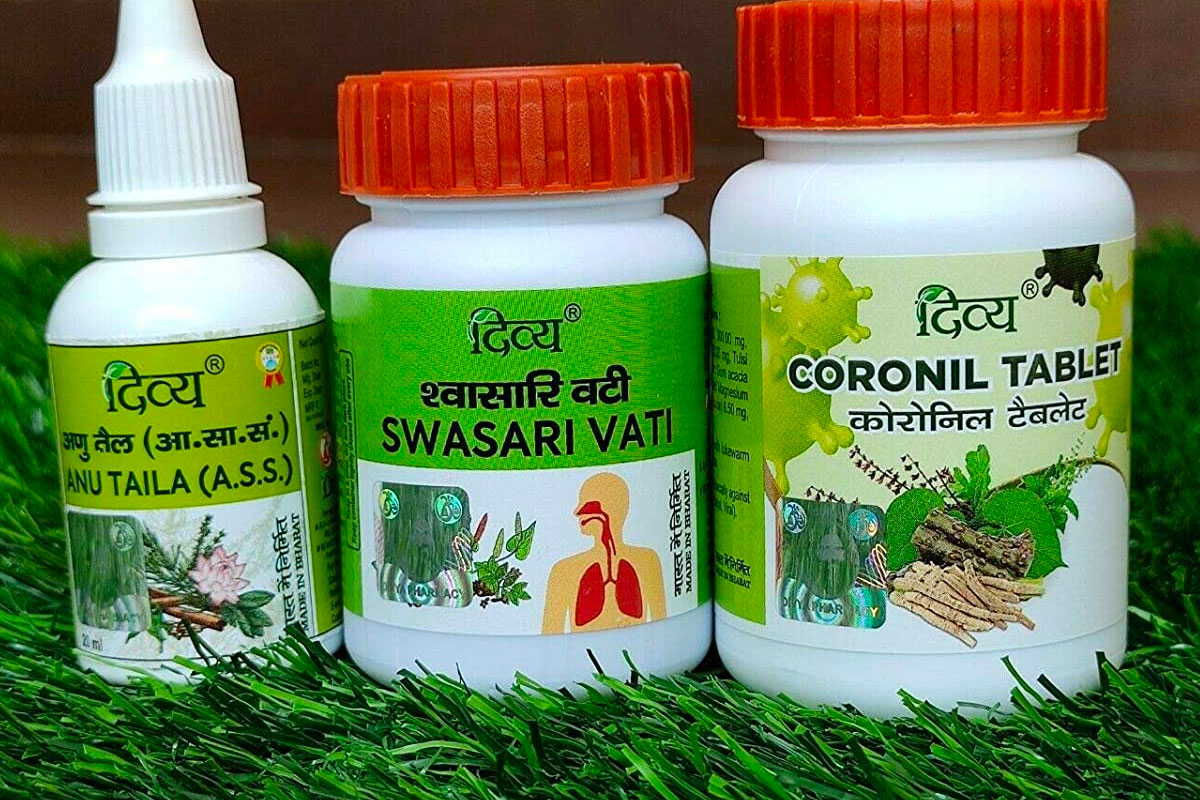
Ramdev and Patanjali: Charisma getting corporatized
Ram Kisan Yadav, popularly known as Baba Ramdev, is the face of Patanjali Ayurveda Limited (“Patanjali”). Ramdev started his journey from television in 2002 as a yoga guru. Clad in saffron clothes with an unquestionable love for the motherland, he soon gained popularity among the poor and middle classes as a healer of ailments, someone who would twist and turn his body to teach yoga and its related benefits. In 2006, he entered the retail market with his company Patanjali and launched consumer products that claimed to use cow urine (cow is a holy animal for Hindus in India) in some of the products. Soon Patanjali became popular among the rural masses. But the man and his company (though the company is owned by his business partner Acharya Balkrishna with 98.55% shares) has always been involved in controversies. This time, however, the controversy is a major concern because it is affecting the health of millions of people in India. Patanjali launched “Coronil” in the wake of the corona virus pandemic and activists and public-spirited people have knocked on the doors of various courts ever since to challenge it.
Trademarks and “Coronil”
An injunction order was passed by the single-Judge bench of Justice CV Karthikeyan of the Madras High Court restraining Patanjali from using the trademark “Coronil” for its drug that Patanjali claimed was a cure for coronavirus. The Petitioner, Arudra Engineering Private Limited, had registered its trademark “CORONIL-92 B” for its products. The court found that the use of the mark “Coronil” by Patanjali violated section 29(4)(b) of the Trade Marks Act (1999). Section 29(4)(b) defines trademark infringement as “a registered trade mark is infringed by a person who, not being a registered proprietor or a person using by way of permitted use, uses in the course of trade, a mark which— is used in relation to goods or services which are not similar to those for which the trade mark is registered.”
In the present case, Patanjali advertised its products under the name “Coronil” which was already a registered trademark by the Petitioner for an acid inhibitor product used to clean heavy machinery and chemical preparations for industrial use. The mark had been in use since 1993. The court noticed that irrespective of the fact that the businesses are of different natures, there was a clear similarity in the name and spelling of the mark that violated the petitioner’s rights.
These trademark problems, however, are only one small example of the legal problems that that “Coronil” has faced. Since its launch by Patanjali, the product has been in the soup.
In addition to violating others’ trademark rights, the product was pitched in the market (incorrectly) as a cure for COVID-19. Patanjali declared that two of its ayurvedic products “Coronil” and “Swasari” were highly effective in curing corona virus. In fact, it claimed that the products, when consumed for seven days, showed a 100% recovery rate. Evidence indicates that these claims failed both governmental regulatory requirements as well as the marketing obligations imposed by The Ministry of Ministry of Ayurveda, Yoga & Naturopathy, Unani, Siddha and Homoeopathy (AYUSH). AYUSH was set up in 2014 to ensure development alternative medicine in field of Ayurveda, Yoga and Naturopathy, Unani, Siddha and Homoeopathy in India.
Legal regime governing new drugs in India
Rule 2(w) of New Drugs and Clinical Trial Rules, 2019 defines “new drugs” as (i) a drug or active pharmaceutical ingredient or phytopharmaceutical drug that has not been used in the country to any significant extent except in accordance with the Act; (ii) a drug approved by the Central Licensing Authority for certain claims; or (iii) a fixed dose combination of two or more drugs, approved separately for certain claims. In terms of regular global approval, there are various phases of drug trials, which typically take 8-12 years for a drug to be approved for marketing. Usually the participants in such trials number 1000-3000. Due to the pandemic this process has been significantly shortened.
In light of the current pandemic, the World Health Organization launched the ACT Accelerator to catalyze the process of creating a cure for the virus. India, in solidarity with the world, in the fight against the virus, relaxed certain requirements in the approval mechanism for new drugs to assure quicker access to potential treatments. On May 26, 2020, the government came up with the Rapid Response Regulatory Framework for COVID-19 Vaccine development. Now, a two-phase trial of 50-500 people can be conducted in less than a year. For example, Covaxin, the Indian vaccine is combining two phases into one to develop a corona virus vaccine for the market.
AYUSH also has general guidelines for Drug Development of Ayurvedic Formulations. Since “Coronil” is a herbal or ayurvedic medicine, it must meet these requirements as well.
Unfortunately, published reports indicate “Coronil” has failed both sets of tests.
First, as reported by Altnews, Patanjanli’s published documents indicate that no toxicity or herbal interaction data was submitted to AYUSH as required by their general guidelines for Drug Development. Even more problematic, as per the Clinical Trial Registry, although submitted documents claim that 120 COVID-19 infected patients took “Coronil” to treat the virus, no proof of the efficacy of the drug was contained in the documentation. In addition, there has been no published peer review regarding the study. Another newspaper reported that only 45 patients were tested. This clearly does not comply with the law. As a result Ministry of Ayush took cognizance of the matter and demanded that Patanjali Ayurveda provide proof of efficacy, including all documents related to the clinical trials. The matter is currently sub-judice.
In addition to making false claims about drug testing and efficacy, Patanjali also violated AYUSH’s ban under its powers under Section 33 P of the Drugs and Cosmetics Act (1940) of any form of publicity or advertisement of AYUSH-related claims for COVID-19 treatment. To avoid such the ban, Patanjali quickly changed the specification of “Coronil” from a cure for corona virus to an immunity booster for the disease. Consequently, The Ayush Ministry has allowed Patanjali to continue to market “Coronil” as an immunity booster for Corona virus management.
For the reasons discussed below, I believe these misleading claims about “Coronil” not only continue to dupe poor consumers, they also violate their fundamental human right to health.
An assault on right to informed choice and healthcare
The World Health Organization (“WHO”) Constitution envisions “the highest attainable standard of health as a fundamental right of every human being” as set forth in the Preamble. States are under an obligation to support the healthcare of their citizens and, in this pandemic, there are much higher expectations from states to meet this obligation. WHO links the right to health with human rights and promotes such right to health as a core principle of human rights. This core principle includes accountability, equality, and participation. Professor Ruth Roemer was a consultant for WHO in connection with health legislation. She described the right to healthcare in PAHO’s Right to Health in the Americas as the critical need and criticized reliance on the concept of the right to health. Health care, she wrote, “of course, should be viewed as encompassing a comprehensive range of services-protective environmental services; prevention and health promotion; therapeutic services; rehabilitative measures; and long-term care. Health protection is not limited to medical intervention….Related and more fundamental actions in sanitation, environmental management, housing, urban planning, agriculture, employment, education, and social welfare directly affect health and are part of the social responsibility for health… The right to health care may also be viewed as a social right guaranteed by international instruments.” If a healthcare system does not protect its beneficiaries from unwarranted claims and advertisements, can we say that the beneficiary is enjoying his/her right to healthcare?
It is true that Universal Declaration of Human Rights (UDHR) is not a treaty per se but there is a consensus that the principles are so sacrosanct for human existence that the UDHR is considered as a binding element of customary international law. Article 25 of the Declaration states: “Everyone has the right to a standard of living adequate for the health and well-being of himself and his family, including food, clothing, housing and medical care and the right to security in the event of…sickness [or ]disability.” India is a signatory to UDHR. As per the WHO preamble discussed earlier, a state should try to assure the highest standard of health is available for its people. The International Covenant on Economic, Social and Cultural Rights under Article 12(1) similarly envisions that the States Parties to the Covenant, including India, recognize the right of everyone to the enjoyment of the “highest attainable standard of physical and mental health.”
What would the highest standard of health mean in a situation where the right to security in event of sickness is being marred with false advertisement of a product unproven claims about its effectiveness or efficacy? According to Kantar Worldpanel, Patanjali’s sale in rural area has grown by 15.7% in April 2019 and the overall growth in urban and rural area has been 3.5% and 5% respectively. Its consumer base is increasing. Since its launch “Coronil” has been sold as a homegrown, natural product thereby having a local appeal which perfectly fits with BJP’s motto “vocal for local.”
The court was correct in its decision to prevent Patanjali from using the term “Coronil” as part of its trademark, but now the state must ban the sale of the product. Since the State has to provide the highest level of health care, particularly during the pandemic, it must remove all products that make any false claim as a coronavirus cure. At the very instant the claim was made public, the law stands violated and must be enforced. A mere statement retracting the claim is a whitewash that does not remove the illegality attached or the future harm to the public who continue buying the product in the sheer hope of killing the virus, which hope inevitably fails.
The lack of any informed choice by patient as a result of the false claims regarding “Coronil” prevents them from making an informed choice about their treatment. In the light of the claims surrounding “Coronil,” are consumers aware of the real effect of the product? Informed choice is a core essential of right to health. If the consumption of a product is because of a misconception, how far it can be said that the state has fulfilled its obligation under UDHR to provide the “right to security in the event of…sickness or disease”?
The subsequent change by Patanjali in claim of product as coronavirus management tool is equally confusing for people who are desperate to find a way to protect themselves. The exact meaning of the terms “coronavirus management” tool or “coronavirus immunity booster” that Patanjali uses in its current advertisments is unclear. What is the intended purpose of coronavirus “management” or “boosters” on the health of an individual or on the coronavirus? Should a company be allowed to sell a product with specification so uncertain? In Carlill v. Carbolic Smoke Ball Co., 1 Q.B. 256 (Court of Appeal 1893), the defendant sued a company that advertised in newspaper about its product as a cure for influenza. The plaintiff was successful in bringing a claim for vague advertisement. Now, in the present case where the government has allowed the “Coronil” product to be sold as an immunity booster for coronavirus management, what is the yardstick to know if it is managing a virus or boosting immunity? Even if we ignore the initial launch of “Coronil” as a cure for corona virus, as opposed simply some type of “booster,”are the specifications clear enough to be called as ayurvedic medicine? How exactly will the product help in fighting the virus or increasing immunity and how will a consumer know that the product is working or not working? A medical product must fulfill some scientific parameters but in the present case what are the parameters for immunity boosters or virus management?
Conclusion
Per recent reports, “Coronil” is selling one million packs per day. Allowing companies like Patanjali to market misleading products is not only illegal, it violates the public’s fundamental right to health. Faith should not be used as a shield for public deception that violates Indians right to health. Deceptive products like “Coronil” must be banned.



